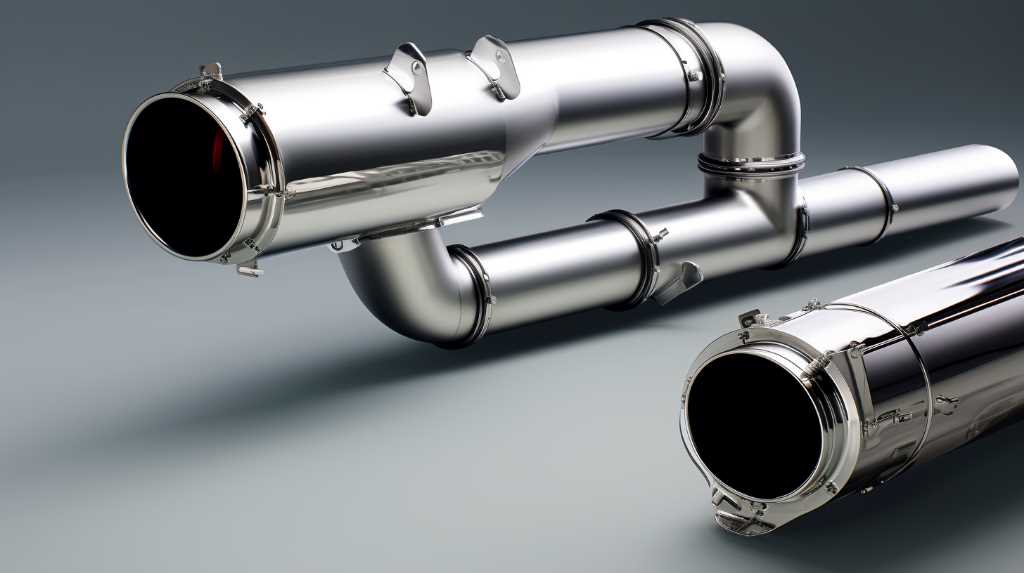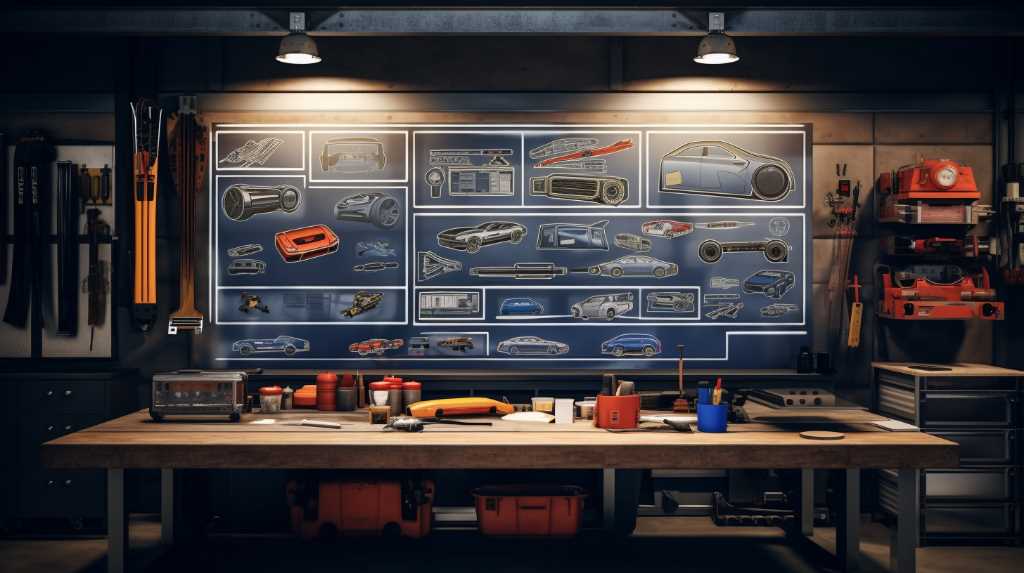Are you trying to decide between stainless steel and other materials for your exhaust system? Look no further! This article will guide you through the benefits of stainless steel, as well as other options available. We will also discuss considerations for high-temperature applications, durability, corrosion resistance, and cost comparison. Whether you are looking for a long-lasting and reliable exhaust material or exploring alternatives for specific applications, we’ve got you covered.
Key Takeaways
- Stainless steel exhaust systems offer exceptional strength and longevity.
- Stainless steel is highly resistant to rust and corrosion, making it a durable choice.
- Stainless steel enhances vehicle performance and engine power.
- While stainless steel is more expensive upfront, it offers greater value in durability and longevity compared to other options.
Benefits of Stainless Steel Exhaust Systems
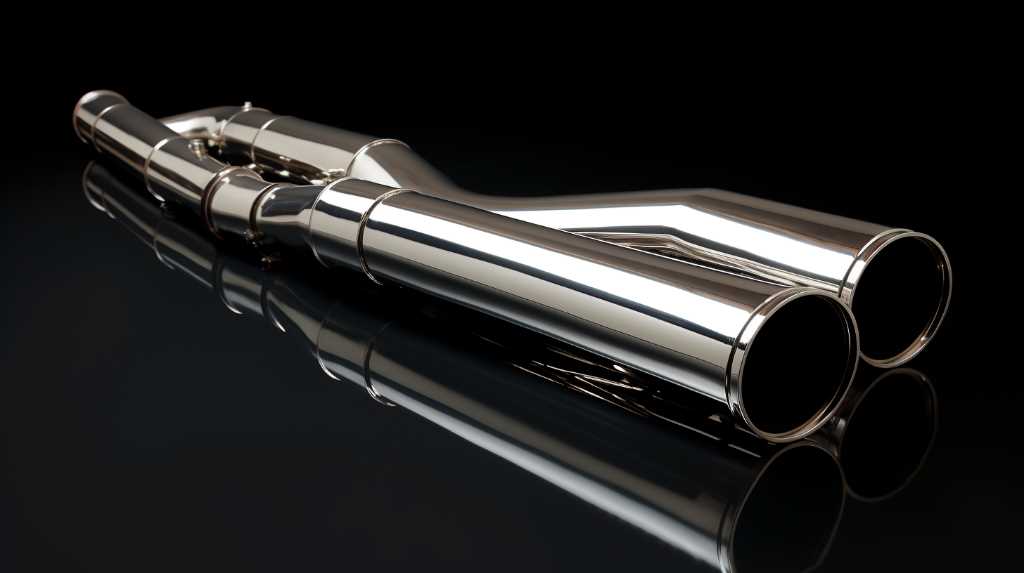
You’ll love the durability of stainless steel exhaust systems. When it comes to choosing an exhaust system for your vehicle, durability is a key factor to consider. Stainless steel exhaust systems are known for their exceptional strength and longevity, making them a popular choice among car enthusiasts.
One of the main benefits of stainless steel exhaust systems is their resistance to corrosion. Unlike other materials, stainless steel is highly resistant to rust and can withstand harsh weather conditions, road salt, and other corrosive elements. This means that your exhaust system will last longer and maintain its appearance over time.
In addition to their durability, stainless steel exhaust systems also offer improved performance. The smooth and unrestricted flow of exhaust gases provided by these systems can help increase engine power and efficiency. This means that you can expect better fuel economy and enhanced overall performance from your vehicle.
Furthermore, stainless steel exhaust systems are relatively lightweight compared to other materials such as cast iron or aluminum. This not only reduces the overall weight of your vehicle, but it also improves handling and maneuverability.
Other Materials Used in Exhaust Systems
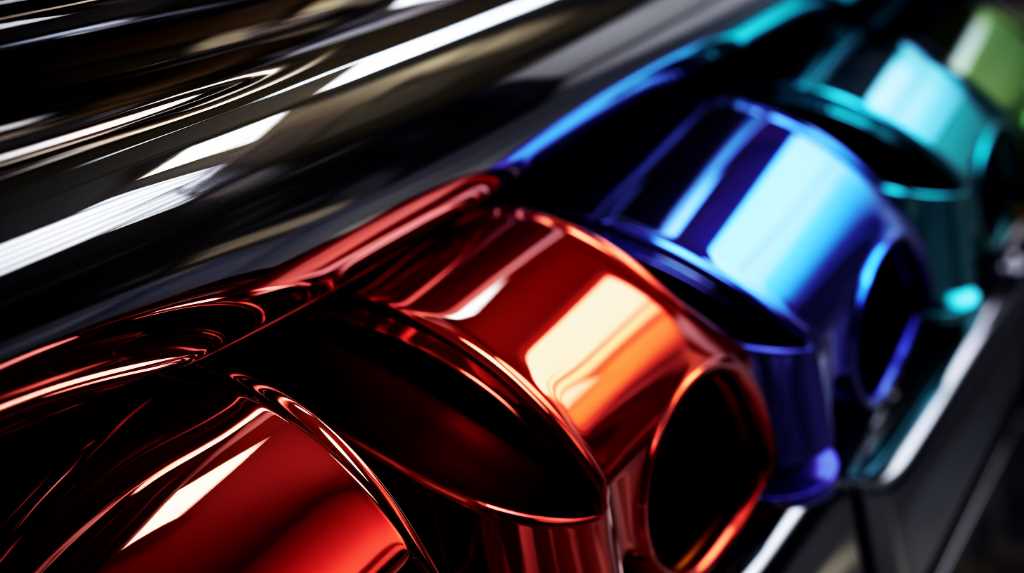
If you’re considering different materials for your exhaust system, there are several other options to explore. While stainless steel is a popular choice for its durability and resistance to corrosion, there are alternative materials that may suit your needs.
One option is aluminized steel, which is more affordable than stainless steel and offers good corrosion resistance. Aluminized steel is made by coating carbon steel with an aluminum-silicon alloy, providing protection against rust and heat.
Another option is mild steel, which is the most cost-effective material for exhaust systems. However, it’s more prone to rust and corrosion compared to stainless steel and aluminized steel. Ceramic-coated steel is another alternative, offering thermal insulation and protection against rust. The ceramic coating helps to reduce heat transfer, keeping the underhood temperatures lower.
Titanium is a lightweight and high-strength material used in high-performance exhaust systems. It offers excellent corrosion resistance and can withstand extreme temperatures. However, titanium exhaust systems are expensive and may not be suitable for all budgets.
When choosing the right material for your exhaust system, consider factors such as budget, performance requirements, and environmental conditions.
Considerations for High-Temperature Applications
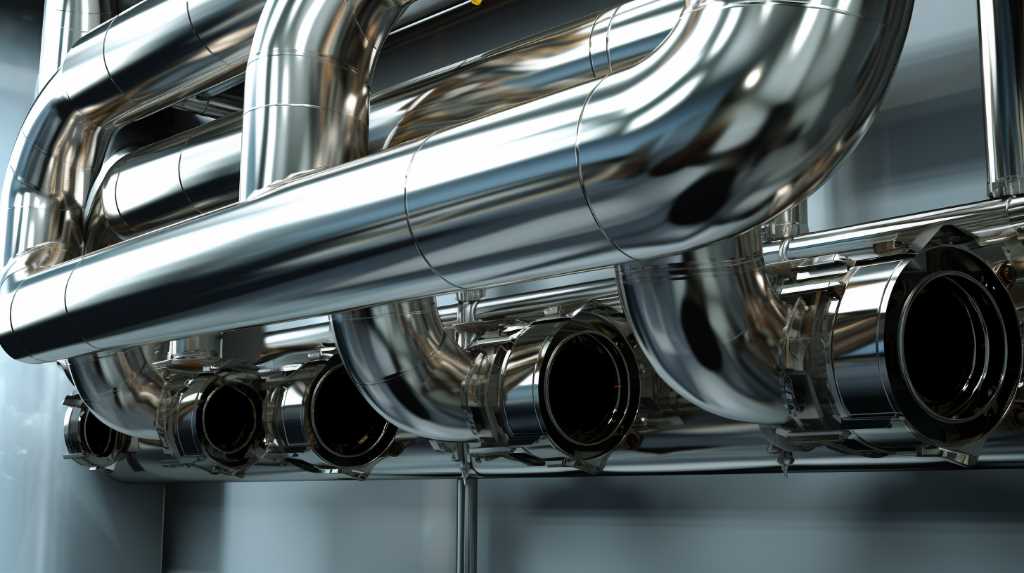
For high-temperature applications, stainless steel is a reliable choice due to its excellent heat resistance and durability. When it comes to exhaust systems operating at high temperatures, it’s crucial to consider the material’s ability to withstand extreme heat without compromising its structural integrity. Stainless steel, particularly grades like 304 and 316, offer exceptional resistance to heat oxidation and corrosion, making them ideal for high-temperature environments.
One of the main considerations for high-temperature applications is the material’s ability to maintain its strength and shape under extreme heat. Stainless steel possesses a high melting point, allowing it to withstand elevated temperatures without deformation or structural failure. This is crucial in exhaust systems, where temperatures can reach upwards of 1000 degrees Celsius.
Furthermore, stainless steel’s heat resistance prevents the formation of cracks and fractures, ensuring the longevity and reliability of the exhaust system. This is particularly important in high-performance vehicles or industrial applications where the exhaust system operates at consistently high temperatures.
Another advantage of stainless steel in high-temperature applications is its resistance to oxidation and corrosion. Stainless steel forms a protective layer of chromium oxide when exposed to oxygen, preventing further oxidation and corrosion. This protective layer enhances the material’s longevity and reduces the risk of premature failure due to rust or corrosion.
Durability and Corrosion Resistance of Stainless Steel

Stainless steel’s durability and corrosion resistance make it an ideal choice for exhaust systems. When it comes to durability, stainless steel is known for its strength and ability to withstand high temperatures and mechanical stress. This means that it can handle the vibrations and movements associated with the operation of a vehicle without weakening or breaking.
In addition, stainless steel is highly resistant to corrosion, which is a common problem in exhaust systems due to the exposure to heat, moisture, and chemicals. The chromium content in stainless steel forms a protective oxide layer on the surface, preventing the metal from rusting or corroding. This not only extends the lifespan of the exhaust system but also ensures its optimal performance over time.
Furthermore, stainless steel is resistant to pitting, crevice corrosion, and stress corrosion cracking, making it suitable for harsh environments and extreme conditions. So, whether you’re driving in a hot, humid climate or in an area where road salt is used, stainless steel will continue to provide excellent durability and corrosion resistance, ensuring a long-lasting and reliable exhaust system for your vehicle.
Cost Comparison of Stainless Steel Vs. Other Options
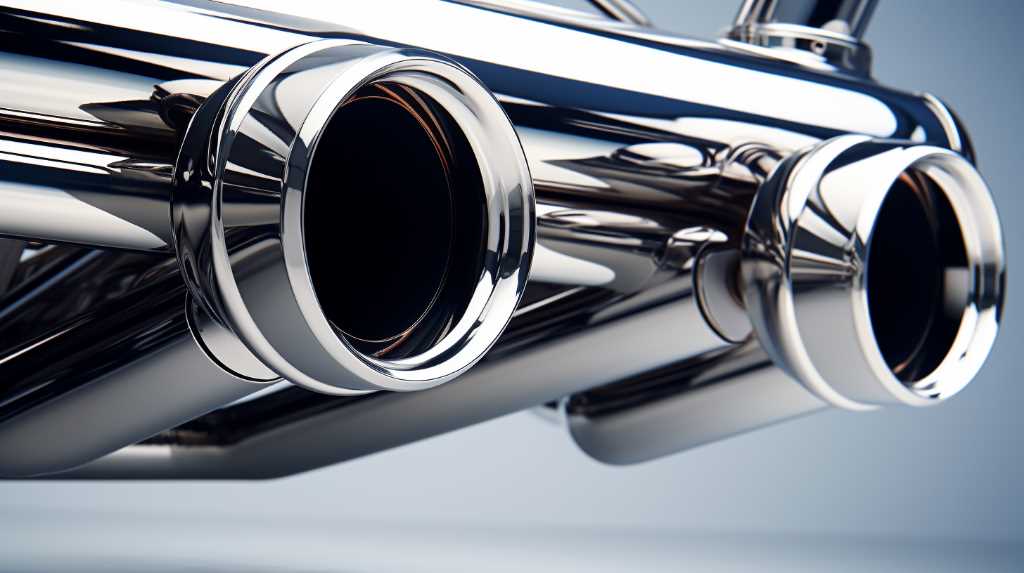
When considering the cost, you’ll find that stainless steel is typically more expensive than other options, but it offers greater value in terms of durability and longevity. While stainless steel exhaust systems may have a higher upfront cost, they can save you money in the long run due to their durability and resistance to corrosion. Other options, such as aluminized steel or mild steel, may be cheaper initially, but they’re more prone to rust and may need to be replaced more frequently.
Stainless steel exhaust systems are made from a combination of iron, chromium, and nickel. This composition gives them excellent resistance to corrosion, even in harsh environments. They’re less likely to rust, which means they can withstand the test of time and offer a longer lifespan compared to other materials. This durability can save you money on repairs and replacements in the future.
On the other hand, aluminized steel and mild steel exhaust systems may be cheaper upfront, but they’re more susceptible to rust and corrosion. Over time, these materials can deteriorate, leading to leaks and reduced performance. This could result in costly repairs or the need for a complete replacement sooner than expected.
Specific Applications for Alternative Exhaust Materials
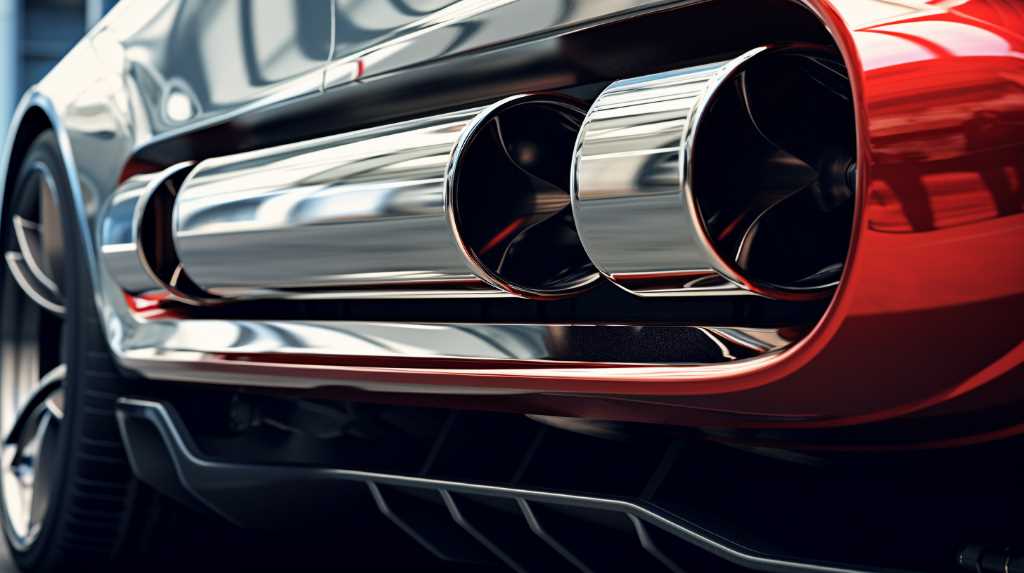
When considering alternative exhaust materials, it’s important to weigh the pros and cons of each option. While stainless steel is a popular choice due to its durability and corrosion resistance, there are other materials that may be more cost-effective for specific applications.
Understanding the specific needs of your exhaust system and comparing the cost-effectiveness of different materials will help you make an informed decision.
Pros and Cons
Are you curious about the advantages and disadvantages of using alternative exhaust materials for specific applications? When it comes to alternative exhaust materials, there are several options available, each with their own pros and cons.
One alternative material that’s commonly used is titanium. It’s lightweight, strong, and has high-temperature resistance, making it ideal for high-performance vehicles. However, titanium is also expensive and difficult to work with.
Another alternative material is Inconel, which is known for its corrosion resistance and high-temperature strength. It’s often used in applications where extreme heat and pressure are prevalent, such as in turbochargers. However, Inconel is also expensive and may not be necessary for all applications.
Ultimately, the choice of alternative exhaust material depends on the specific requirements and budget of the project.
Cost-effectiveness
If you’re looking for a cost-effective option for specific applications, consider alternative exhaust materials such as aluminized steel or mild steel. While stainless steel is known for its durability and resistance to corrosion, it can be quite expensive compared to other options.
Aluminized steel, on the other hand, is a more affordable alternative that offers good corrosion resistance and heat protection. It’s made by coating a steel substrate with aluminum-silicon alloy, providing a cost-effective solution for exhaust systems.
Mild steel is another cost-effective option that’s commonly used in exhaust applications. Although it isn’t as corrosion-resistant as stainless steel, it’s still a durable and reliable material. When selecting an exhaust material, it’s important to consider the specific application and budget to determine the most cost-effective option.
Frequently Asked Questions
What Are the Environmental Benefits of Using Stainless Steel Exhaust Systems Compared to Other Materials?
When considering the environmental benefits of exhaust systems, stainless steel stands out. It’s highly resistant to corrosion and can withstand extreme temperatures, making it durable and long-lasting.
Can Stainless Steel Exhaust Systems Be Used in Vehicles With High-Performance Engines?
Yes, stainless steel exhaust systems can be used in vehicles with high-performance engines. They offer durability, resistance to heat and corrosion, and improved airflow, making them ideal for maximizing engine performance.
Are There Any Health Risks Associated With Using Stainless Steel Exhaust Systems?
There aren’t any health risks associated with using stainless steel exhaust systems. They are a safe choice for high-performance vehicles.
How Long Can a Stainless Steel Exhaust System Last Before Needing to Be Replaced?
Stainless steel exhaust systems can last a long time before needing replacement. The exact lifespan depends on factors like usage and maintenance. Regular inspections and upkeep can help extend the longevity of your stainless steel exhaust system.
Are There Any Specific Maintenance Requirements for Stainless Steel Exhaust Systems to Ensure Their Longevity?
To ensure the longevity of your stainless steel exhaust system, some maintenance is required. Regularly cleaning the system and inspecting for any signs of damage or corrosion will help maintain its durability.
Conclusion
When it comes to choosing the right exhaust material, stainless steel stands out as a top choice. Its numerous benefits including durability, corrosion resistance, and high-temperature performance make it a reliable option.
While other materials may have their uses in specific applications, stainless steel proves to be the superior choice overall. Furthermore, despite its higher initial cost, the long-term savings in terms of durability and maintenance make it a cost-effective investment.
Related Articles
The Ultimate Guide to Performance Car Exhaust Systems
Next Exhaust Article: Legal Implications of Upgrading Your Car’s Exhaust System
Previous Exhaust Article: A Symphony of Power: The Art of Tuning Exhaust Sound

Hey there, I’m Terra Frank, the driving force behind Motion Performance Motor Sports. I’m thrilled to have you here, exploring the fascinating world of cars, trucks, and everything related to automotive performance and accessories.
